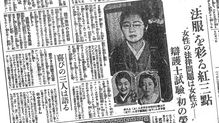シングルを選択している人は哀れで、孤独とみられる
戦略⑤自らの権限を強化する
第五の戦略は、自分がシングルであることについて、無視されているとか、魅力的でないなどと考えるのはやめて、もっとポジティブな見方をすることにより、自分の権限を強化することだ。
この戦略は、ポジティブな自己認識を育てることとは異なる。個人のことに焦点を合わせることとは違い、シングルである自分の状況に関わることだからだ。
この場合、幸福なシングルの人たちは、結婚していないという自分の状況をポジティブなものととらえ、シングルであることが自分の幸福に不当に影響を与えることを許さない。
近年、研究者たちは、シングルの生活や人生、ステレオタイプについて研究する際、シングルの人たちをひとつの同質的なグループではなく、二つのタイプとして基本的に区別しなければならないと考えている。
第一のグループは、「自分の選択でシングルでいる人たち」で、彼らはシングルであることを幸福に思っており、パートナーを求めてはいない。第二のグループは、「状況によってシングルになった人たち」で、結婚を希望している人たちや、現在も結婚しようと思っている人たちが含まれる。
もちろん、それぞれの個人は現在属しているグループから、もうひとつのグループに移行することもできるが、二つのグループは、自分がシングルであることをどう感じているか、シングルであることをどの程度まで受け入れているかという点で異なる(※32)。
永続的にシングルである、あるいは一時的にシングルであることを幸福に感じている人たちに権限を付与することは特に重要だ。なぜなら、こういう人たちは、最も厳しい社会的な問題に直面しがちだからだ。
意外にもこういうシングルの人たちは、できればカップルになりたいと思っているシングルの人たちに比べて、もっとネガティブに受け止められている(※33)。
なかでも、自分の選択によってシングルであることを選んでいる人たちは、なりゆきによってシングルになっている人たちに比べて、特に哀れで、孤独な存在だとみられている。後者のシングルの人たちのほうが、成熟していて、社交的だと思われているのだ。
このような結果になった理由を考えてみると、自分の選択でシングルでいる人たちは、結婚至上主義という社会的規範に反抗しているとみられて、他者の怒りを引き起こすが、状況によってシングルになってしまった人たちのほうは共感を得ることができるからだ(※34)。
シングルの人たちの権限を強化するためには、当事者たちがシングルでいることを心地よく感じるだけでは十分ではない。社会と、そして、周囲の人々がより親切になるように、シングルの人たちに対する解釈の仕方を再定義しなければならないのだ。
ポジティブなものの見方を身につけるためには、いろいろな方法がある。シングルの権限を強化することを目的として最近書かれた本や記事は、変化をもたらす迅速で、簡単な方法の一部とみることができるだろう。
懐疑的な立場をとる人たちもいるかもしれないが、ポジティブな考え方を奨励する本は、読者のウェルビーイングに持続的なよい効果を残すことが、各種の研究からわかっている(※35)。
また、なんらかの講座を受講する、ワークショップに参加する、コンサルティングを受けるなど、権限を与える介入をおこなえば、シングルの人たちの幸福を増大させ、彼らが社会的緊張や、差別に立ち向かえるようにすることができるという分析結果もある(※36)。
本当の意味で幸せなシングルライフへの道を切り開く
このことは、ある意味で、私が参加してみたシングルのための匿名のワークショップを思い起こさせる。
シングルの人たちのなかには、自分にふさわしい相手を見つけたい、結婚という道を歩んでみたいと望む人たちもいた。だが、そうではなくて、自分のシングルという状況に不安を感じないようになりたいと切望する人たちもいた。
結婚していない自分の状態を安らかに感じられるようにサポートしてくれるワークショップは、めったに開催されていないが、そのニーズは確かにある。
そういうワークショップは、どんな内容であるべきだろう? 世の中にごまんとある、結婚生活を向上させ、長続きさせるためのセミナーのことを考えてみよう。それらのセミナーと同じように、心理学者や教育者たちは、シングルのライフスタイルに役立つワークショップや講座を開発することができるはずだ。
実際、離婚した人たちや、配偶者に先立たれた人たちが感じる喪失と別れを克服するサポートをおこなう支援グループはすでに数多くある。だが、過去を乗り越えるだけでなく、さらに必要なことがある。
結婚していない人たちも、自分の新しい状況を楽しむことができるのだから、離婚したばかりの人たちや、配偶者に先立たれたばかりの人たちのためのセミナーも、それを目標にして計画するべきだ。
同様に、学校も、その教育カリキュラムのなかで、シングルのライフスタイルについての情報を提供するべきだ。
今の子どもたちの一部は一生結婚しないだろうし、誰もが長い人生のいつかの時点で、必ずシングルとして生きていくことになる。シングルとしての生活の仕方、結婚至上主義への対処の仕方は、私たち全員の社会生活の道具箱に用意されていなければならない。
本書では、幸福なシングルの生き方の多くの側面を紹介している。今回は、幸福なシングル生活を送るための最も重要なステップを紹介した。
今までに説明した5つの戦略――①独身差別に対する意識を高める、②ポジティブな自己認識をもつ、③自分に適した環境を選ぶ、④差別的な習慣に屈しない、⑤自らの権限を強化する――は、どれも、必ずしも個人のニーズや意志と結びついていない社会的連鎖を破るためには不可欠なことだ。
社会的な重荷から自己を解放することができさえすれば、シングルの人たちは必ず、力強く生きるすべを見出し、本当の意味で幸せなシングルライフへの道を切り開くことができるだろう。
※1. Bella M. DePaulo and Wendy L. Morris, “The Unrecognized Stereotyping and Discrimination against Singles,”Current Directions in Psychological Science 15, no. 5 (2006): 251-54.
※2. Eric Klinenberg, Going Solo: The Extraordinary Rise and Surprising Appeal of Living Alone (New York:Penguin, 2012)[ 『シングルトン ひとりで生きる!』エリック・クライネンバーグ著, 白川貴子訳, 鳥影社, 2014年];Bella M. DePaulo, Singled Out: How Singles are Stereotyped, Stigmatized, and Ignored, and Still Live Happily Ever After (New York: St. Martin’s Griffin, 2007)[ 『シングルド・アウト アメリカ社会のシングリズムとマトリマニア 第I巻』『シングルド・アウト アメリカ社会のシングリズムとマトリマニア 第II巻: 結婚神話1~4』ベラ・デパウロ著, 旬馬ゆきの編訳, Kindle版].
※3. Bella DePaulo, How We Live Now: Redefining Home and Family in the 21st Century (Hillsboro, OR: Atria Books, 2015); Kinneret Lahad, A Table for One: A Critical Reading of Singlehood, Gender and Time(Manchester, UK: University of Manchester, 2017).
※4. Pieter A. Gautier, Michael Svarer, and Coen N. Teulings, “Marriage and the City: Search Frictions and Sorting of Singles,” Journal of Urban Economics 67, no. 2 (2010): 206-18.
※5. Wendy L. Morris, “The Effect of Stigma Awareness on the Self-Esteem of Singles,” Online Archive of University of Virginia Scholarship, 2005.
※6. Lauri, response to Bella DePaulo, “Is It Bad to Notice Discrimination?” Psychology Today , on June 16, 2008,www.psychologytoday.com/blog/living-single/200805/is-it-bad-notice-discrimination.
※7. Ibid.
※8. Gian Vittorio Caprara, Patrizia Steca, Maria Gerbino, Marinella Paciello, and Giovanni Maria Vecchio, “Looking for Adolescents’ Well-Being: Self-Efficacy Beliefs as Determinants of Positive Thinking and Happiness,” Epidemiologia e psichiatria sociale 15, no. 1 (2006): 30-43.
※9. Ulrich Schimmack and Ed Diener, “Predictive Validity of Explicit and Implicit Self-Esteem for Subjective Well-Being,” Journal of Research in Personality 37, no. 2 (2003): 100-106.
※10. Evangelos C. Karademas, “Self-Efficacy, Social Support and WellBeing: The Mediating Role of Optimism,”Personality and Individual Differences 40, no. 6 (2006): 1281-90.
※11. Charles S. Carver, Michael F. Scheier, and Suzanne C. Segerstrom, “Optimism,” Clinical Psychology Review 30, no. 7 (2010): 879-89.
※12. Bella M. DePaulo, Singled Out: How Singles are Stereotyped, Stigmatized, and Ignored, and Still Live Happily Ever After (New York: St. Martin’s Griffin, 2007)[ 『シングルド・アウト アメリカ社会のシングリズムとマトリマニア 第I巻』『シングルド・アウト アメリカ社会のシングリズムとマトリマニア 第II巻: 結婚神話1~4』ベラ・デパウロ著, 旬馬ゆきの編訳, Kindle版]; Monica Kirkpatrick Johnson, “Family Roles and Work Values: Processes of Selection and Change,” Journal of Marriage and Family 67, no. 2 (2005): 352-69.
※13. Sally Macintyre, Anne Ellaway, Geoff Der, Graeme Ford, and Kate Hunt, “Do Housing Tenure and Car Access Predict Health Because They Are Simply Markers of Income or Self Esteem? A Scottish Study,” Journal of Epidemiology and Community Health 52, no. 10 (1998): 657-64.
※14. Richard J. Riding and Stephen Rayner, Self Perception (London: Greenwood, 2001).
※15. Lois M. Tamir and Toni C. Antonucci, “Self-Perception, Motivation, and Social Support through the Family Life Course,” Journal of Marriage and Family 43, no. 1 (1981): 151-60.
※16.Christopher G. Ellison, “Religious Involvement and Self-Perception among Black Americans,” Social Forces 71,no. 4 (1993): 1027-55.
※17. Najah Mahmoud Manasra, “The Effect of Remaining Unmarried on Self-Perception and Mental Health Status:A Study of Palestinian Single Women” (PhD diss., De Montfort University, 2003).
※18. Ed Diener and Marissa Diener, “Cross-cultural Correlates of Life Satisfaction and Self-Esteem,” in Culture and Well-Being: The Collected Works of Ed Diener , ed. Ed Diener (Dordrecht, Netherlands: Springer, 2009),71-91.
※19. Lauren F. Winner, “Real Sex: The Naked Truth about Chastity,” Theology & Sexuality 26, no. 1 (2015).
※20. Christena Cleveland, “Singled Out: How Churches Can Embrace Unmarried Adults,” Christena Cleveland(blog), December 2, 2013, www.christenacleveland.com/blogarchive/2013/12/singled-out.
※21. Bella M. DePaulo, Singled Out: How Singles are Stereotyped, Stigmatized, and Ignored, and Still Live Happily Ever After (New York: St. Martin’s Griffin, 2007)[ 『シングルド・アウト アメリカ社会のシングリズムとマトリマニア 第I巻』『シングルド・アウト アメリカ社会のシングリズムとマトリマニア 第II巻: 結婚神話1~4』ベラ・デパウロ著, 旬馬ゆきの編訳, Kindle版]; Kinneret Lahad, “‘Am I Asking for Too Much?’ The Selective Single Woman as a New Social Problem,” Women’s Studies International Forum 40, no. 5 (2013): 23-32.
※22. Jenny Gierveld, Pearl A. Dykstra, and Niels Schenk, “Living Arrangements, Intergenerational Support Types and Older Adult Loneliness in Eastern and Western Europe,” Demographic Research 27, no. 2 (2012): 167.
※23. WeLive, “We Live: Love Your Life,” 2017, www.welive.com/.
※24. Lisette Kuyper and Tineke Fokkema, “Loneliness among Older Lesbian, Gay, and Bisexual Adults: The Role of Minority Stress,” Archives of Sexual Behavior 39, no. 5 (2010): 1171-80.
※25. Hyun-Jun Kim and Karen I. Fredriksen-Goldsen, “Living Arrangement and Loneliness among Lesbian, Gay,and Bisexual Older Adults,” The Gerontologist 56, no. 3 (2016): 548-58.
※26. Jesus Ramirez-Valles, Jessica Dirkes, and Hope A. Barrett, “Gayby Boomers’ Social Support: Exploring the Connection between Health and Emotional and Instrumental Support in Older Gay Men,” Journal of Gerontological Social Work 57, no. 2-4 (2014): 218-34.
※27. Elyakim Kislev, “Deciphering the ‘Ethnic Penalty’ of Immigrants in Western Europe: A Cross-classified Multilevel Analysis,” Social Indicators Research (2016); Elyakim Kislev, “The Effect of Education Policies on HigherEducation Attainment of Immigrants in Western Europe: A Cross-classified Multilevel Analysis,”Journal of European Social Policy 26, no. 2 (2016): 183-99.
※28. Jennifer O’Connell, “Being on Your Own on Valentine’s Day: Four Singletons Speak,” Irish Times , February 11, 2017, www.irishtimes.com/life-andstyle/people/being-on-your-own-on-valentine-s-day-four-singletonsspeak1.2964287.
※29.Rachel, “A Call for Single Action,” Rachel’s Musings , September 16, 2013, www.rabe.org/a-call-for-singleaction/.
※30. Bella M. DePaulo, Singled Out: How Singles are Stereotyped, Stigmatized, and Ignored, and Still Live Happily Ever After (New York: St. Martin’s Griffin, 2007)[ 『シングルド・アウト アメリカ社会のシングリズムとマトリマニア 第I巻』『シングルド・アウト アメリカ社会のシングリズムとマトリマニア 第II巻: 結婚神話1~4』ベラ・デパウロ著, 旬馬ゆきの編訳, Kindle版]; Bella DePaulo, Marriage vs. Single Life: How Science and the Media Got It So Wrong (Charleston, SC: DoubleDoor Books, 2015); Bella DePaulo, “Single in a Society Preoccupied with Couples,” in Handbook of Solitude: Psychological Perspectives on Social Isolation, Social Withdrawal, and Being Alone , ed. Robert J. Coplan and Julie C. Bowker (New York: John Wiley & Sons, 2014), 302-16.
※31. Alice Poma and Tommaso Gravante, “‘This Struggle Bound Us’: An Analysis of the Emotional Dimension of Protest Based on the Study of Four Grassroots Resistances in Spain and Mexico,” Qualitative Sociology Review12, no. 1 (2016).
※32. Wendy L. Morris and Brittany K. Osburn, “Do You Take This Marriage? Perceived Choice over Marital Status Affects the Stereotypes of Single and Married People,” Singlehood from Individual and Social Perspectives(2016): 145-62; Gal Slonim, Nurit Gur-Yaish, and Ruth Katz, “By Choice or by Circumstance?: Stereotypes of and Feelings about Single People,” Studia Psychologica 57, no. 1 (2015): 35-48.
※33. Wendy L. Morris and Brittany K. Osburn, “Do You Take This Marriage? Perceived Choice over Marital Status Affects the Stereotypes of Single and Married People,” Singlehood from Individual and Social Perspectives(2016): 145-62; Gal Slonim, Nurit Gur-Yaish, and Ruth Katz, “By Choice or by Circumstance?: Stereotypes of and Feelings about Single People,” Studia Psychologica 57, no. 1 (2015): 35-48.
※34. Gal Slonim, Nurit Gur-Yaish, and Ruth Katz, “By Choice or by Circumstance?: Stereotypes of and Feelings about Single People,” Studia Psychologica 57, no. 1 (2015): 35-48.
※35. Ad Bergsma, “Do Self-Help Books Help?” Journal of Happiness Studies 9, no. 3 (2008): 341-60.
※36. Linda Bolier, Merel Haverman, Gerben J. Westerhof, Heleen Riper, Filip Smit, and Ernst Bohlmeijer, “Positive Psychology Interventions: A Meta-analysis of Randomized Controlled Studies,” BMC Public Health 13, no. 1(2013): 119.
イスラエル・ヘブライ大学の公共政策・政府学部で教鞭を執る。マイノリティー、社会政策、シングル研究が専門。米国・コロンビア大学で社会学の博士号を取得したほか、カウンセリング、公共政策、社会学の3つの修士号を有する。リーダーシップ、移住、社会・教育政策、エスニック・マイノリティー、グループ・セラピー、シングルなどのテーマで、多くの記事・書籍を執筆・編纂している。

















